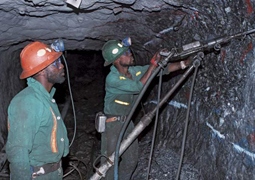
The South African Chamber of Mines, representing member mines that are responsible for more than 90% of the country’s mineral production by value, is experiencing a serious challenge of locating about 332 580 people who are collectively owed R3.2 billion in unpaid benefits.
This came out during a meeting of the Portfolio Committee on Mineral Resources on Wednesday morning, in which the Chamber briefed the Committee on the Zambezi Protocol and how it could provide a framework for the development of mining in South Africa.
The Stakeholder Relations manager of the Chamber, Ms Zakithi Zama, said the money is owed to beneficiaries due to a number of reasons.
“Some of the reasons for the unpaid benefits range from the fact that many former employees were not aware of what was due to them when they left the employ of the industry.Most do not have fixed addresses, and some came to South Africa from neighbouring countries, which makes tracking and tracing even more difficult,” said Ms Zama.
In light of the large sums of money owed to former mine workers in unpaid benefits, Members of the Committee urged the Chamber to work closely with government structures and the National House of Traditional Leaders, in order to accelerate the tracking and tracing process.
Ms Zama informed the Committee that the Zambesi Protocol, which arose out of a dialogue in Zambia chaired by former Nigerian president Mr Olusegun Obasanjo, is a mining blueprint formulated by Africans for Africans. She said the initiative aims to improve trust between governments, society and the industry, and to enhance competitiveness and investment across the African region.
Committee Member Mr Motswaledi Matlala raised a concern about the slow pace of transformation in the mining sector and the ongoing exclusion of historically marginalised people.
Justice Molafo
14 June 2017

